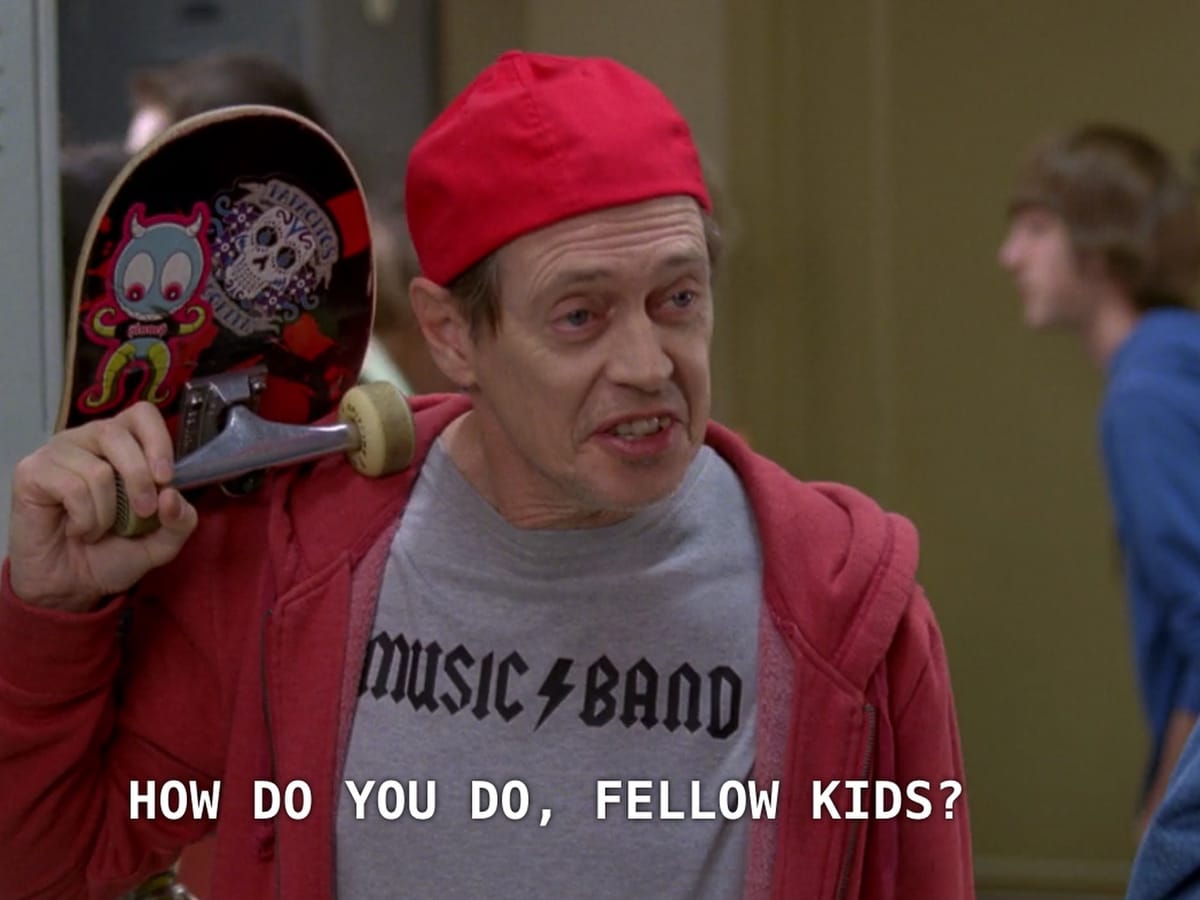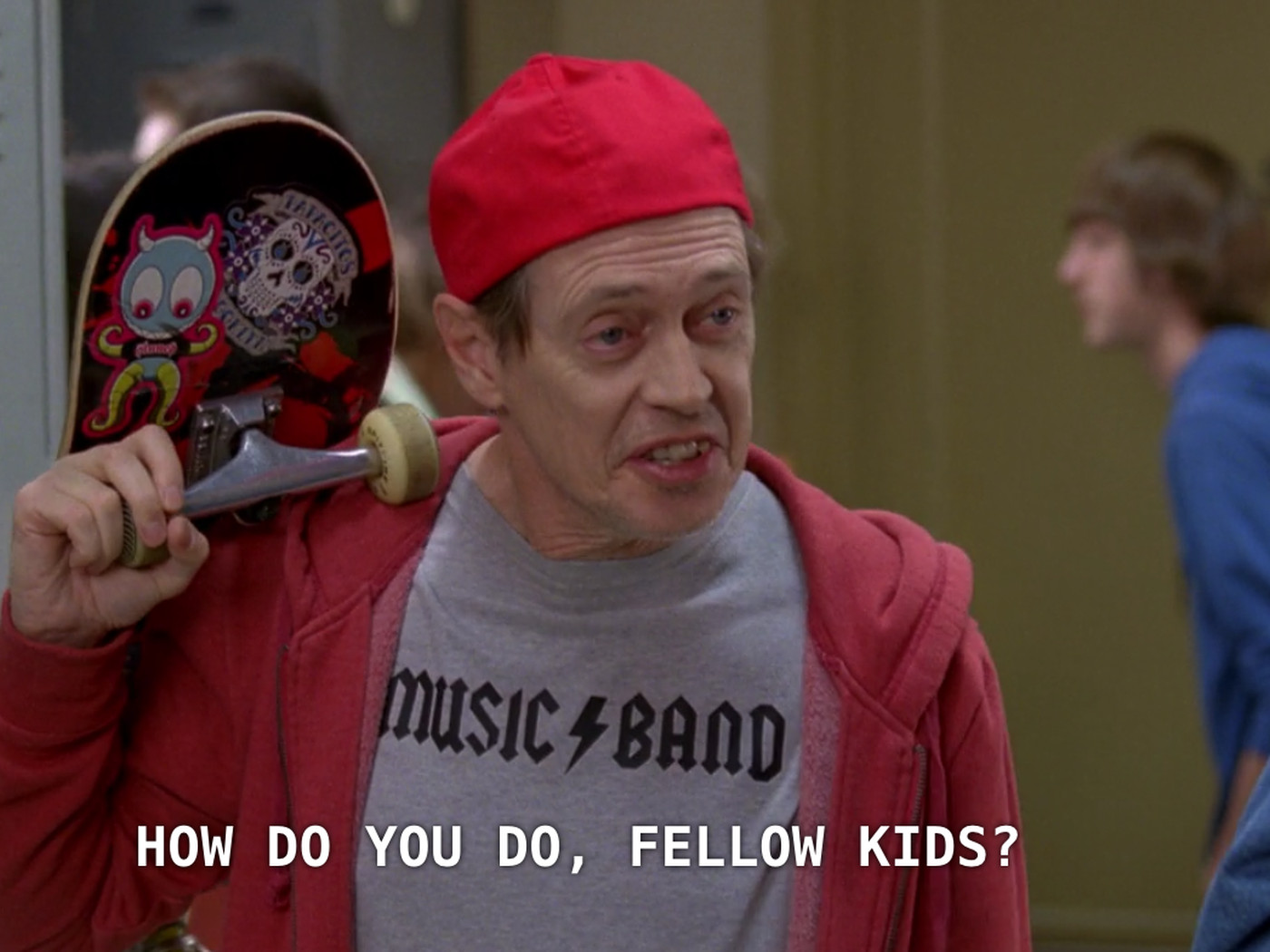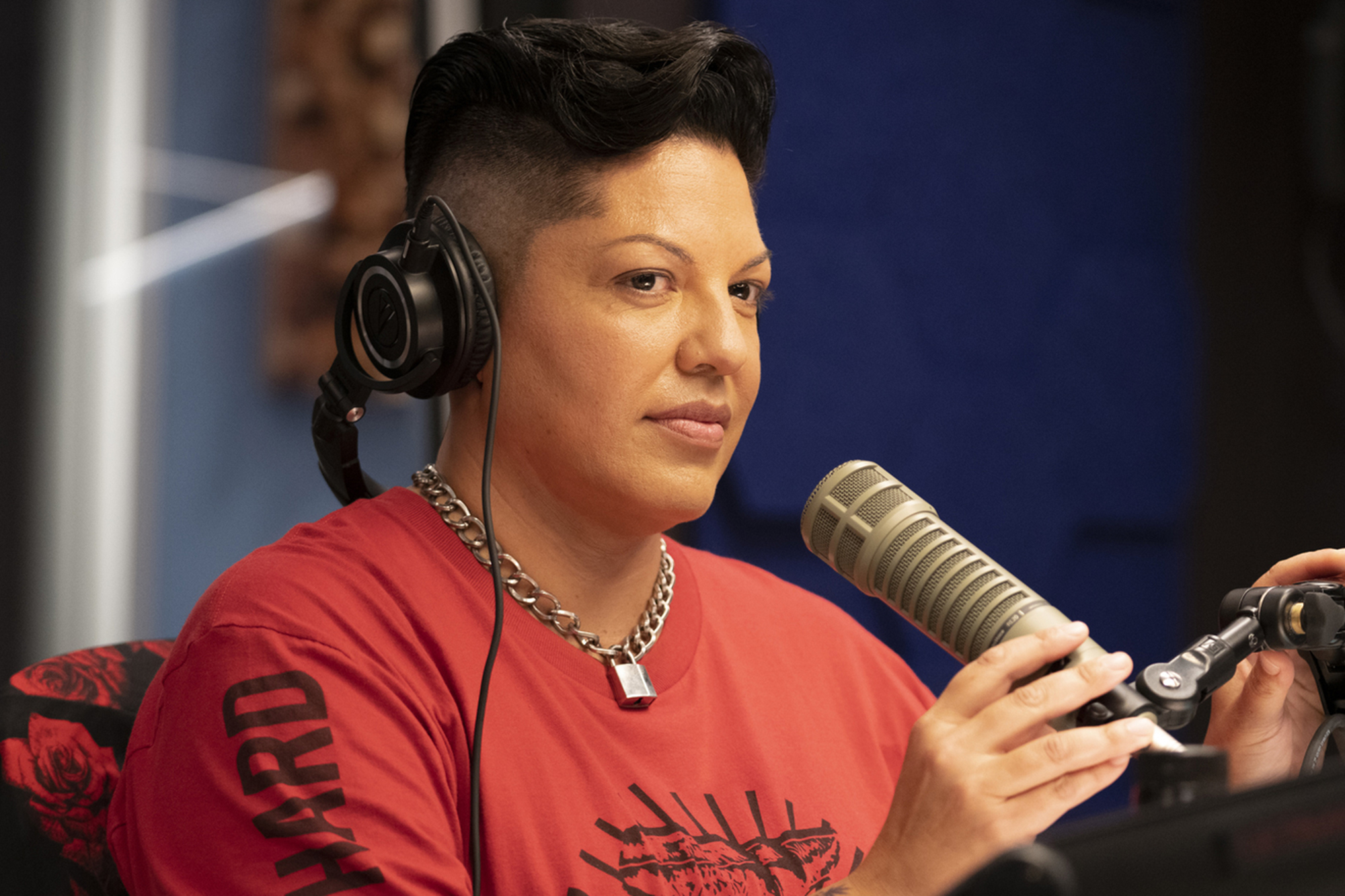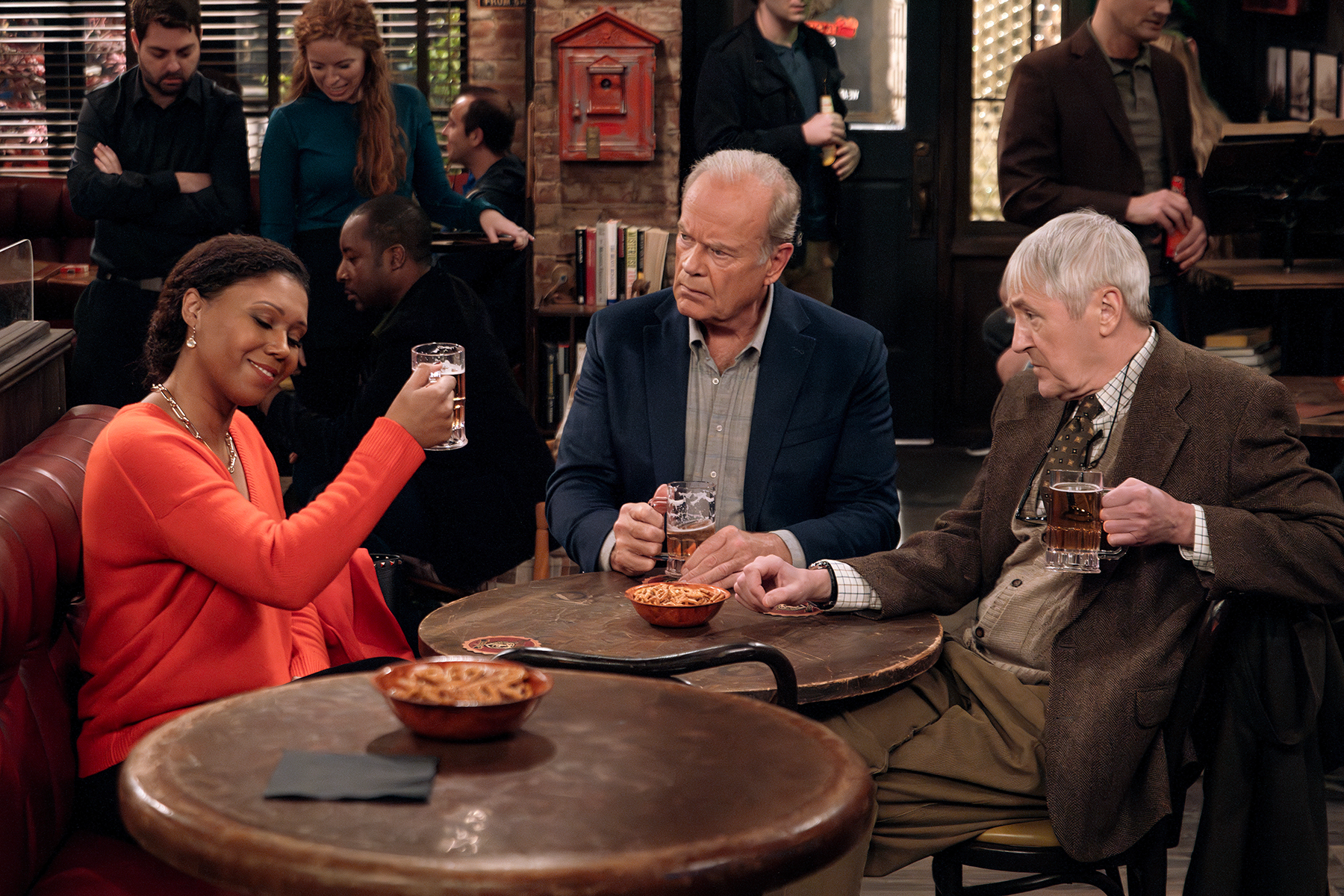The Curse of Reboot Cringe
Everything old is new again, and it's painful to watch.

The Curse of Reboot Cringe
Everything old is new again, and it’s painful to watch
We are very much in the reboot era. It might feel familiar, if you’ve been watching television for a while. The nineties had spin-offs, the aughts had prequels and the last decade saw the beginning of an endless stream of extended universes. Television trends are just as cyclical as fashion trends, and reboots are the new (old) miniskirt.
The current crop of resurrected shows is a mixture of sequels that bring back old characters to dance around for our entertainment long past their heyday - such as And Just Like That… and Futurama - and truer reboots that dump a fresh set of characters into an old concept - see How I Met Your Father and That 90’s Show (admittedly the latter is so heavy-handed with cameos it manages to be the worst of both worlds). The problem with these shows that try to make the old feel new is that they come with a side of desperation. Underneath every fresh concept and rehash of old dialogue is Steve Buscemi asking “How do you do, fellow kids?” These shows beg to be accepted. In an attempt to feel relevant in a time decades after previous finales, these reboots are intent on showing a modern audience that they know how times have changed, and they’ve definitely kept up. The result is an endless stream of wry comments and knowing winks to an audience cringing at clunky humour.

There’s a reason we like to revisit old shows. The comedy might not have aged well, but at least you can call it “of its time”. The characters are familiar, the jokes fall in a pattern we remember and there’s something soothing about watching a story trundle along to a happy ending you know well. The technology that dates these shows is a tiny presence, because technology used to be a tiny presence. Watching a show created before the term “doom scrolling” was coined is comforting. Nostalgia can be a powerful force.
That nostalgia drive has taken us to the current reboot era, but these reworked shows feel an overwhelming need to stand out from their origin and place themselves firmly in the here and now. Suddenly, technology is an obvious presence; dating apps, especially, abound. The technology problem in modern sitcoms has been around for a while - an episode of 2 Broke Girls full of jokes about the shiny new iPhone 5 feels more firmly set in the past than a Frasier episode about dinner reservations. The professions and big companies that seem ubiquitous now will die off. At some point, stories about podcasters and Amazon Prime are going to feel like fossils.
There’s also the sense that these reboots have an uneasy familiarity with the way the original shows were criticised. If the first iteration was considered overwhelmingly white, or straight, then queer characters and people of colour are thrown in, in a way that feels tokenizing. And Just Like That… is one of the most guilty parties. The original Sex and the City was ground-breaking when it first aired - women driving a show and having frank conversations about sex was a breath of fresh air in the nineties. The show did, however, have an incredibly straight viewpoint, and some extremely dodgy depictions of bisexuality. As with most nineties shows set in New York, it also portrayed the city as incredibly undiverse. The two film sequels were critical flops, with the second especially receiving deserved amounts of flack for some blatant racism. And Just Like That…, the reboot that began in 2021, attempted to face those criticisms by throwing diversity at the screen in a way that screamed “We get it! Honest!”
Che Diaz, the Mexican-American non-binary comedian introduced as Carrie’s podcast co-host, was such a screamingly cartoonish character that when they began to cry, in the second season, over a script that had them playing a tropey non-binary stereotype, the show was almost swallowed by a black hole of poorly-written meta-commentary. When Miranda, a character who identified firmly as straight in the original show, begins to question her sexuality after her affair with the AFAB Che, the word “bisexual” was resolutely not featured in the script. Instead, Miranda commits to only dating women from that point on, and And Just Like That… contributes to the toxic idea that non-binary people are just “woman-lite”. Another character comes out as non-binary on the show, only to be faced with resounding bafflement.
Every non-white character in And Just Like That… has their race put front and centre in their storylines, in a way that makes them feel less like people and more like stars in overly earnest educational films. The new, culturally conscious attitudes of the core characters were shoehorned in with absolutely no thought of decent writing. Why bother to create an actually good show? It’s a reboot, the audience is already built in. Quality is overrated. In a review of the opening episode of And Just Like That… for Empire, Terri White wrote “the attempts to paint a rich, real, diverse world are ham-fisted, inauthentic and riddled with self-consciousness, awkwardness and moments of self-congratulation”. Two seasons in, the show hasn’t improved.

Honestly, this isn’t meant to be a hit piece on a single show. The problem is not unique to And Just Like That…, it’s just glaringly obvious on that one. All of these old-made-new shows struggle with telling relevant stories. In 2001, television writers struggled with how to depict New York in the wake of the 9/11 terrorist attacks. Some dramas set in the city showed the aftermath, while comedies of the time stayed away - continuing to exist in a world where the city was as it always was (with an adjusted skyline in title cards). Now, writers are deciding how to handle Covid. The new season of Futurama contains a pandemic parody episode - “Rage Against the Vaccine”. On its own, it could almost have been funny. As part of an entire season of “We did this thing that’s happening but in the future” episodes, it was embarrassing. Over half of the new Futurama episodes released so far have been parodies of modern issues - streaming television, cryptocurrency, cancellation - that drag the “joke” out far longer than necessary. Once, Futurama was a fun show. Now, it’s fallen into the trap of relevance, and lost its confidence in the process. In comparison to Futurama, And Just Like That… makes Covid part of the show’s background fabric. The pandemic becomes a punchline, something that definitely happened but now only lives on in the glove-wearing habits of Carrie Bradshaw and the occasional designer mask. It sets the show firmly in the hyper-specific “now”, as if the audience really needs reminding that we’re no longer in the nineties.
What does the audience want from a reboot? Are viewers really desperate to find out how beloved characters reacted to pandemics and Prime? Do the people watching these sequel shows really need to be reminded that they’re being made and taking place in a different time? A huge part of the reboot appeal is revisiting characters you care about, but these shows struggle to keep these characters appealing and interesting when they’re being shoehorned into new stories. The new Ahsoka series isn’t exactly a reboot - it’s another story set in the Star Wars universe - but it does effectively act as a live-action follow up to the animated series Rebels. Six episodes into an eight episode season, the show has hit its stride, but the first few episodes were bogged down with exposition. The show had to fill in the gaps for viewers familiar with the animated Star Wars universe and try to summarise the main characters for those who never bothered with the cartoons. Reboots are forced to fill in a ten or twenty year gap between stories in their early episodes, and it takes a cringe-worthy amount of “as you know, Bob” exposition to do it.
Getting more of a show you love is appealing in theory, but in practice it’s usually a case of “be careful what you wish for”. Marta Kauffman and David Crane - the creators of Friends - have said multiple times that they wouldn’t consider doing a sequel series because it would mean undoing the carefully constructed happy endings of the finale. Watching a reboot that undoes all the neatly tied bows on the end of an earlier TV show is rarely a satisfying experience. For shows like the recently-cancelled How I Met Your Father that populate an old concept with new characters, redoing the same structure pulls apart the charm of the original, and no amount of cameos from the original cast can recapture the magic. Gilmore Girls: A Year in the Life, the Netflix reboot that aired in 2016, is another example of a sequel so determined to stand out as taking place in a new time that it feels dated less than a decade later, and the show itself was widely trashed for character assassinations.
Again, reboots and sequels and spin-offs (oh my) aren’t a new phenomenon. They’ve rarely been successful in the past, either. When most of the main cast wanted to end their time on Scrubs, the show attempted to reboot as Scrubs: Med School with a new set of characters. The result was a short-lived mess. Once Upon A Time was a mess from its very first episode, but the kind of mess that’s deeply enjoyable. The show’s final season, a soft reboot with an aged-up central character and a move to Seattle, lost all of the mildly insane spark of the previous seasons of the show, and led to its inevitable cancellation. Possibly one of the only spin-offs to really find commercial success was Frasier - the show created to fill the gap in the schedule left by the end of Cheers.
Frasier was successful because it stayed away from its origin. Kelsey Grammer originally didn’t want to reprise his role from Cheers and David Angell, Peter Casey and David Lee - the trio who created the character - didn’t want to just be “the Frasier guys”. The show went ahead on the basis that it would be distinct from Cheers - set in a different city and with cameos and references kept to a minimum. The resulting show was a hit, holding the record from Emmy wins until 2016 when Game of Thrones won its 38th award. Frasier concluded in 2004 after eleven seasons. Now, it’s set to return.

It’s impossible to judge the new Frasier reboot, as it doesn’t begin airing until October 12th. I’ll speculate anyway, though. There’s a chance, however slim, that it’ll be ten episodes of fun, interesting stories about a character we know and love in a new (old) city. My doom and gloom prophecy is that it will be crammed full of hacky dialogue and confusion about the youth of today. If it fits in with its fellow reboots, there’ll be a misunderstanding about pronouns, an argument about the word “woke”, and after Nicholas Lyndhurst says something sarcastically British there’ll be a joke about the revolutionary war by way of a Hamilton reference. These shows love to mention Hamilton. Delightful or dire, Frasier will have an audience regardless. They’re built-in.
Unfortunately, I don’t have a ritual to end the curse of reboot cringe. I’ve tried summoning old gods and new, and bitching endlessly about the awful television I’ve been sitting through (despite no one forcing me). Reboots, sequels and spin-offs will never leave us. Some of them, in the future, might even be good. It’s possible though, that some stories are better off left alone.
Thanks for reading Two-Hats Television! Subscribe for free to receive new posts and support my work.




